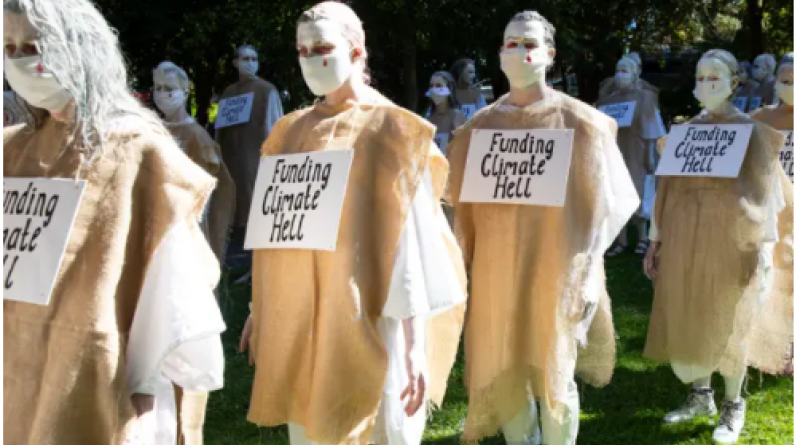All hot air: UK commits to climate action but not to new funding

Boris Johnson announces £500m for ‘blue planet fund’, but pledge was contained in 2019 Conservative manifesto.
Boris Johnson has set out his intention to “build back better for the world”, to protect the natural environment and wildlife, and tackle the climate crisis, at the G7 summit in Cornwall. But he committed no new funds to the initiative, and other G7 leaders showed little sign of coming forward with the cash commitments that campaigners said were needed to help developing countries cope with the climate emergency.
Announcing £500m to be spent on a “blue planet fund”, for the protection of the oceans and coastal areas in poor countries, he said: “As democratic nations, we have a responsibility to help developing countries reap the benefits of clean growth through a fair and transparent system. The G7 has an unprecedented opportunity to drive a global green industrial revolution, with the potential to transform the way we live.
Sir David Attenborough, the naturalist, told the G7 leaders: “The natural world today is greatly diminished. Our planet is warming fast … The decisions we make this decade – in particular the decisions made by the most economically advanced nations – are the most important in human history.”
However, a £500m commitment is not new money, but was contained in the Conservative manifesto in 2019, and will come from the £11.6bn in climate finance that the UK has already agreed to spend over the next five years helping developing countries.

Damian Green, former de facto deputy prime minister, said: “The £500m Blue Planet Fund was announced last year, and certainly has important work to do on biodiversity and conservation around the world. But there is no new money being announced today, which is becoming a pattern after the announcements on vaccines and girls’ education.”
The G7 summit was intended to be an important staging post on the way to vital UN climate talks later this year, called Cop26, to be hosted by Johnson in Glasgow. The world’s wealthiest democracies – the UK, the US, Japan, Canada, Germany, France, Italy and the EU – reaffirmed their intention of holding global heating to no more than 1.5C.
Along with their commitments on emissions, they were also expected to increase financial assistance to the developing world, to help poor countries cut their greenhouse gas emissions and cope with the impacts of extreme weather. Rich countries pledged in 2009 to ensure poor countries would receive $100bn a year in climate finance by 2020, but that target has not yet been met.
Campaigners warned developing countries would lose trust in the rich world without new funding, and face increasing difficulty in grappling with the climate crisis, if longstanding pledges were not met. They said the “build back better” plan was vague and little more than a label, containing few concrete measures.
Green laid the blame for the failure to announce new finance squarely on the government’s decision to slash overseas aid, which has taken the pressure off other countries to come up with new finance for the developing world.
He said: “The UK’s cut from 0.7% to 0.5% on aid has prevented finance ministers agreeing a financing plan before this summit started. So now it is up to the leaders, in the final 24 hours, to get their cheque books out and decide how they are going to divide the bill to pay for the ambition in the communique.”
John Sauven, executive director of Greenpeace UK, said: “Despite the green soundbites, Johnson has simply reheated old promises and peppered his plan with hypocrisy, rather than taking real action to tackle the climate and nature emergency. While commitments to provide more support to developing nations are absolutely vital, until they cough up the cash, we’re taking nothing for granted.
“The dismal track record of rich nations to honour commitments made over a decade ago on climate finance, alongside the UK’s decision to slash its aid budget, make it hard to take the so-called ‘Build Back Better for the World’ plan with anything more than a pinch of salt.”
Downing Street said the UK’s blue planet fund would support countries including Ghana, Indonesia and Pacific Island states to combat unsustainable fishing, restore coastal ecosystems such as mangrove swamps and coral reefs, and reduce marine pollution.
The G7 are also expected to endorse a “nature compact” to halt and reverse biodiversity loss by 2030, in line with a global target of protecting at least 30% of land and 30% of the ocean by 2030 that all countries are being urged to sign up to this year.
12 June 2021
The Guardian




